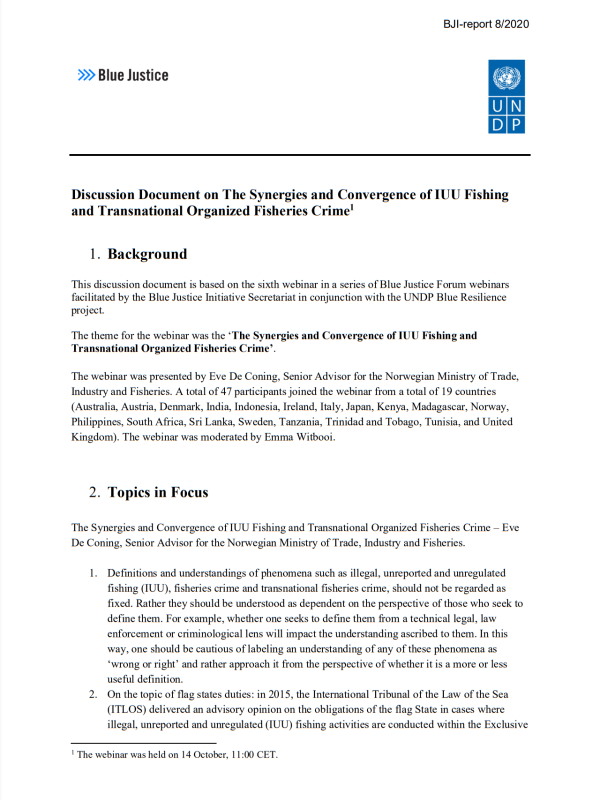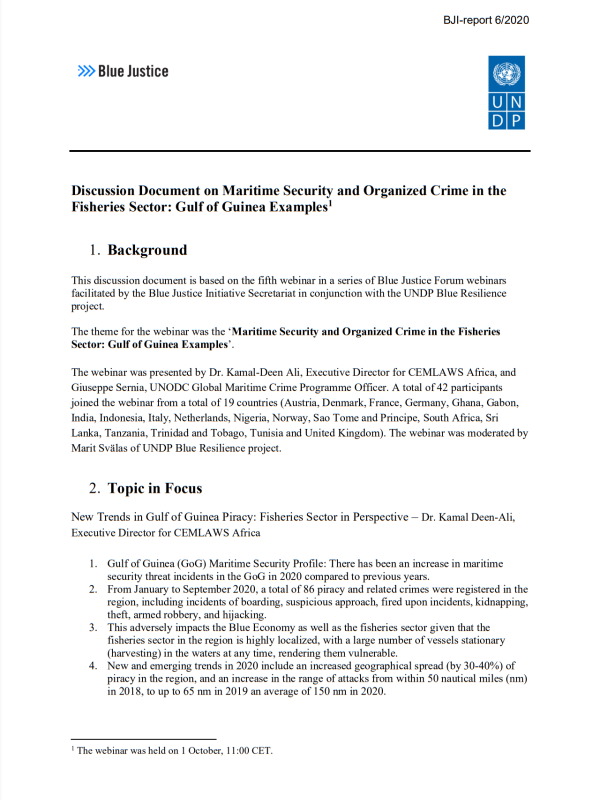This discussion document is based on the 15th webinar in a series of Blue Justice Forum webinars facilitated by the Blue Justice Initiative Secretariat in conjunction with the UNDP Blue Resilience project.
The theme for the webinar was the ‘Protecting and Incentivizing Whistleblowers to Combat Fisheries Crimes’.
The webinar was presented by John Kostyack, former Executive Director, National Whistleblower Center; Kelsey Condon, Attorney/Advisor, Environmental Protection, Kohn, Kohn & Colapinto; Mark Worth, Executive Director, Whistleblowing International; and Stephen M. Kohn, Chair, National Whistleblower Center. A total of 25 participants joined the webinar from 12 countries (Austria, Barbados, Chile, China, Finland, France, Germany, Greenland, Norway, Sri Lanka, United Kingdom, United States). The webinar was moderated by Marit Svälas from the Blue Resilience Project.
Summary of findings
- Whistleblowers are key for the detection of crimes. For a whistleblower law to be effective, it needs to be backed by the following components: confidentiality, legal support, protection, rewards and honest law enforcement.
- The U.S. whistleblower law is based on the concept of Qui Tam, or “The Lincoln Law”. It gives a whistleblower/citizen the power to initiative a law enforcement investigation, and if their investigation leads to a sanction, the whistleblower gets a percentage of the sanction they triggered. There is no budgeting from a government, and it incentivizes high-quality reporting.
- Reward-based laws can easily be applied to fisheries crime, where it might prove an effective tool in addressing crimes such as bribery, money laundering, tax crime, customs violations, reporting violations, and/or corruption.
- People witness corruption every day that threatens their forests, fisheries, and wildlife, but law enforcement agencies in most countries do not adequately protect whistleblowers.
- The long-term solution to corruption within the fisheries sector is to strengthen whistleblower programs in home countries. A short-term solution, however, can be to report under U.S. laws with track records of offering confidentiality, investigating reports and providing awards in successful cases.




